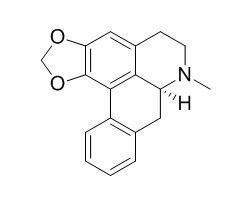Providing storage is as stated on the product vial and the vial is kept tightly sealed, the product can be stored for up to
24 months(2-8C).
Wherever possible, you should prepare and use solutions on the same day. However, if you need to make up stock solutions in advance, we recommend that you store the solution as aliquots in tightly sealed vials at -20C. Generally, these will be useable for up to two weeks. Before use, and prior to opening the vial we recommend that you allow your product to equilibrate to room temperature for at least 1 hour.
Need more advice on solubility, usage and handling? Please email to: service@chemfaces.com
The packaging of the product may have turned upside down during transportation, resulting in the natural compounds adhering to the neck or cap of the vial. take the vial out of its packaging and gently shake to let the compounds fall to the bottom of the vial. for liquid products, centrifuge at 200-500 RPM to gather the liquid at the bottom of the vial. try to avoid loss or contamination during handling.
Collection of Czechoslovak Chemical Communications, 1989, 54(4):1118-1125.
Alkaloids from Papaver rhoeas var. chelidonioides O. KUNTZE, P. confine JORD., and P. dubium L[Reference:
WebLink]
As minor constituents were isolated protopine, papaverrubine A, rhoeagenine, (-)-stylopine, an unidentified alkaloid PCH 1 (m.p. 205 °C), 2-methyl-1,2,3,4-tetrahydro-β-carboline and (-)-trans-N-methylstylopinium hydroxide.
METHODS AND RESULTS:
Chromatographic analysis detected isorhoeadine, allocryptopine, cryptopine, papaverrubine C, D and E, scoulerine, isoboldine, berberine, corysamine, magnoflorine and corytuberine. P. confine JORD. (tetraploid, 2n = 28) was found to display a very low alkaloid content (0.003%) and afforded corytuberine and berberine as principal alkaloids, along with minor amounts of protopine rhoeadine, scoulerine and cryptopine. Chromatography identified isocorydine, corydine, allocryptopine, Aporheine, stylopine, sinactine, thebaine, mecambrine, papaverrubines A, E, C and D, coptisine and corysamine.
CONCLUSIONS:
The tertiary alkaloid fraction from ripe capsules of P. dubium L. (hexaploid, 2n = 42; 0.24% of alkaloids) of domestic origin afforded (+)-roemerine (Aporheine) as the main constituent (87% of total bases); mecambrine, protopine, rhoeadine and papaverrubines D and C (traces of A and E) were detected. From strongly polar bases N-methylaporheinium hydroxide (as iodide) was isolated and corytuberine detected.



